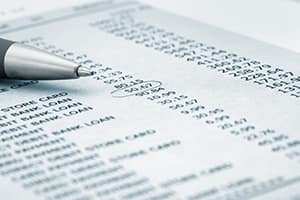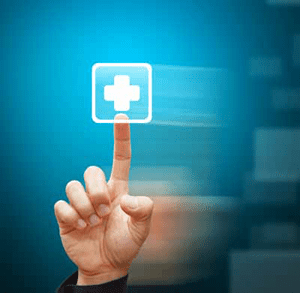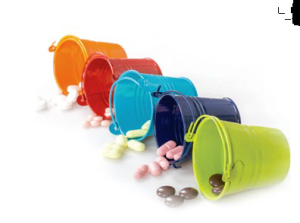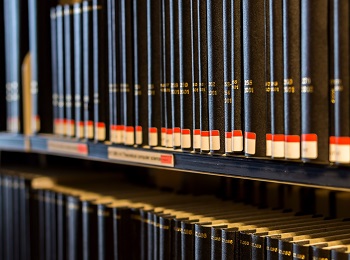Medicinal Product Regulation and Product Liability in the United Arab Emirates: An Overview (Part II of II)
 In Part I, we discussed technical aspects pertaining to Pharmaceutical Product Regulations applicable in Dubai and the United Arab Emirates. Part I explored varied areas including regulatory bodies and applicable law, regulation of biological and combination products in Dubai and the UAE, law surrounding registration and compliance by pharmaceutical establishments, regulation applicable to medical devices and diagnostics, pricing, funding and reimbursement process involved within Dubai and UAE's national healthcare system, pricing of medicinal products, insurance obligations to be observed by healthcare providers, pharmaceutical companies, pharmacies, law pertaining to clinical trials, and other key factors. This Part II covers detailed areas covering product liability, parallel importation in Dubai and the UAE, applicability of US Sunshine Act or similar regulation, advertising, sales and marketing of pharmaceutical products, medicines, medical devices, diagnostics besides other key and relevant questions.
In Part I, we discussed technical aspects pertaining to Pharmaceutical Product Regulations applicable in Dubai and the United Arab Emirates. Part I explored varied areas including regulatory bodies and applicable law, regulation of biological and combination products in Dubai and the UAE, law surrounding registration and compliance by pharmaceutical establishments, regulation applicable to medical devices and diagnostics, pricing, funding and reimbursement process involved within Dubai and UAE's national healthcare system, pricing of medicinal products, insurance obligations to be observed by healthcare providers, pharmaceutical companies, pharmacies, law pertaining to clinical trials, and other key factors. This Part II covers detailed areas covering product liability, parallel importation in Dubai and the UAE, applicability of US Sunshine Act or similar regulation, advertising, sales and marketing of pharmaceutical products, medicines, medical devices, diagnostics besides other key and relevant questions.
13. What commitments and pharmacovigilance obligations apply after a company has obtained marketing authorization?
Response:
Healthcare providers are under a duty (overseen by the UAE Ministry of Health (MOH), Health Authority-Abu Dhabi (HAAD) or the Dubai Health Authority (DHA)) to promptly report any suspected adverse reaction from a medical product even if they are not certain that a particular medical product is a cause.
An advisory committee made up of representatives from a wide variety of medical disciplines provides expert opinion and recommendations on reported cases, including on:
· Maintaining quality standards in data collection and assessment procedures.
· Data interpretation.
· Publication of information.
· Follow-up action required.
Based on the advisory committee's recommendation, the MOH will decide whether action needs to be taken against the particular entity that manufactured and sold the medicine in the light of the information obtained, by changing product safety information, for instance, or adding a new adverse event, interaction, warning or contraindication notice.
Are there further conditions concerning how the drug is distributed and accessible to patients?
Controlled and semi-controlled drugs are distributed to patients only after a prescription from a physician registered and licensed by a health authority in the UAE has been produced by the patients.
Are foreign marketing authorizations recognized in your jurisdiction?
Foreign marketing authorizations are not recognized in the jurisdiction. A supplier or distributor which has been authorized for marketing outside the UAE still has to go through the licensing process even if the marketing entity is a shareholder in a UAE company.
Alternatively, the foreign company can engage a distributor or agent which is already licensed through the ministry of health.
Foreign authorizations are strictly prohibited in the healthcare sector in UAE. Therefore, all the entities wishing to sell their medicinal products in UAE must obtain a license from the MOH.
14. Parallel Importation in Dubai and/or the UAE
Are parallel imports of medicinal products into Abu Dhabi, Dubai or within the United Arab Emirates allowed?
Response:
Parallel imports of medicinal products are not allowed into any Emirate and/or the UAE.
15. Marketing – US Sunshine Act or similar Legislation Applicability
What are the restrictions on marketing practices such as gifts, sponsoring, consultancy agreements or incentive schemes for healthcare establishments or individual medical practitioners? Is there any anti-bribery legislation and has it affected the life sciences industry? Are national restrictions intended to apply outside your jurisdiction? Are there any actual or proposed US "Sunshine Act" style registration requirements?
Response:
The UAE does not have a dedicated anti-corruption or anti-bribery legislation in place. However, provisions of the UAE Penal Code (Federal Law No. 3 of 1987) and the Federal Human Resources Law (Federal Law No. 11 of 2008) helps in tackling corruption in the country. The UAE Penal Code imposes criminal liability on an individual that offers a gift or the like to a public official. However, the anti-corruption provisions in this legislation apply to non-public official also. These legislations have a very wide ambit and therefore applies to corruption and bribery offenses in the life sciences industry also.
Marketing practices are regulated by the:
• Pharmaceuticals Law 1983.
• Ministerial Resolution No. 171 of 2011 (2011 Resolution).
• Health Insurance Law No. 23 of 2005 (Law No. 23).
• Federal Law No. 10 of 2208 (Law No. 10).
• HAAD Circular (DG 16/14): Kickbacks in Medical Laboratory Services (HAAD circular).
Insurance companies, third party administers and health service providers have to comply with provisions of Law No. 23 and Law No. 10, which prohibit the payment and receipt of commissions, financial incentives or making illegal profits when referring patients for medical tests.
Measures involving federal laws, local laws and the health policy of each Emirate are helping to curb the unfair practice of paying commissions and the aim is to stop these practices throughout the UAE.
The GCC countries are signatories to the United Nations Convention against Corruption (UNCAC). Federal Decree No. 8 of 2006 implements UNCAC in the UAE.
16. Sales and Marketing
What are the restrictions on selling medicinal products? Are there specific regulations for the sale of medicinal products on the internet, by e-mail and by mail order?
 Response:
Response:
The UAE Ministry of Health (MOH), the Health Authority-Abu Dhabi and Dubai Health Authority require that prescription medication is sold in accordance with an appropriate prescription form completed by a qualified and registered medical practitioner or another authorized health professional.
Although federal law does not allow for internet-based selling, an applicant can seek prior approval from the MOH and the relevant local regulatory authority to be allowed to sell medicines online.
What is the scope of this approval and how is it obtained?
Since the MOH is the primary authority that deals with medicinal and other healthcare related products and its advertising, this approval could enable its applicant to advertise the particular product within the scope of the regulations that are prescribed by MOH from time to time.
Can pharmacy medicines and prescription only medicines only be sold from premises that are a registered pharmacy, and by a person who is lawfully conducting a retail pharmacy business?
Pharmacy medicines and medicines given on prescription can only be sold by a registered pharmacy or through a person who is lawfully allowed to conduct the pharmacy business. In accordance with the Article 2 of Pharmacy Law, no person is permitted to practice pharmaceuticals profession without obtaining a pre-hand license from the MOH. Also, an assistant pharmacist is required to obtain a license from the authority in accordance with the Article 3 of the said law. Article 18 of the said law strictly prohibit a person to open a pharmacy without obtaining a license from MOH.
17. Advertising
What are the restrictions on advertising medicinal products?
Legislation and regulatory authority
Advertising of medicinal products is governed by the Pharmaceuticals Law 1983 and by regulatory authorities such as the UAE Ministry of Health (MOH), the Health Authority-Abu Dhabi and Dubai Health Authority.
Publication of printed or broadcast advertising material for any medicine or pharmaceutical preparation must be approved by the Minister of Health or the relevant authority (section 83, Pharmaceuticals Law 1983).
What restrictions apply to advertising medicinal products?
Regulation 430 of 2007 on Health Advertisement Regulation is the primary piece of legislation in regards to an advertisement in the medical field. Further, Article 83, of Federal Law no. 15 of 1980 on Printed Matters and Publications strictly prohibit the entities from publishing any advertisements regarding medicinal products without the prior approval of MOH.
Article 4 of the abovementioned regulation has stated a few restrictions, in the field of advertisements relating to medicinal products, such as:
· should not breach country laws and regulations;
· must not contradict with UAE customs and Islamic traditions;
· text must not be misleading;.
· should not cause harm to public decency;
· not to encourage excessive or unsuitable consumption; and
· samples should not be presented in advertisements
Internet advertising
Internet advertising of medicines or pharmaceutical products may not be shown without special permission from the relevant authority.
Federal Law No. 15 of 1980 (governing Printed Matters and Publications) deals with advertising standards and penalties to be imposed in case of non-compliance (Sections 86 to 103).
Penalties include jail sentences of between one and six months and fines of between AED 100 and AED 5,000
18. Data Protection
Do data protection laws impact on pharmaceutical regulation in your jurisdiction?
Data protection law in the UAE is based on the guidelines of Directive 95/46/EC on data protection (Data Protection Directive) and the UK Data Protection Act 1998. The Dubai International Financial Centre (DIFC) has formulated its own data protection law, DIFC law No.1 of 2007 which is broadly consistent with the Data Protection Directive (which is broadly consistent with the Data Protection Directive.)
Under the good practice code, healthcare providers' reporting of data and results of clinical trials are subject to compliance monitoring, through inspection visits and regular audits (see Question 7).
The healthcare providers are under an obligation to maintain timely records and documents in order to present to the inspectors at the time of inspections. The data of clinical trials should be maintained from time to time and the same should also be conveyed to the MOH, as and when required.
The National Pharmacovigilance Program was launched in 2008 in the UAE. HAAD encouraged pharmacovigilance to vide the development of a Unified Prescription Form in order to enhance pharmaceutical care and quash the errors in medical practice.
19. Packaging and Labeling
Outline the regulation of the packaging and labeling of medicinal products.
Legislation and regulatory authority
Packaging and labeling of medicinal products are governed by the Pharmaceuticals Law 1983 and overseen by the relevant health authorities (see Question 1, Regulatory authorities).
Information requirements
The following information and data must be written in both Arabic and English on leaflets and containers of medicines and other pharmaceutical preparations (Article 67, Pharmaceuticals Law 1983):
· Name of the medicine or pharmaceutical preparation, and the registration number.
· Compounds of the medicine and their amounts.
· Date of expiry.
· Name of the factory producing the medicine or pharmaceutical preparation.
· Directions for use and cautionary warnings.
20. Product Liability
Outline the key regulators and their powers in relation to medicinal product liability.
The key regulators are listed in Question 1.The Health Minister can recall any medicinal product which is found to pose danger to the public (Article 64, Pharmaceuticals Law 1983). Under Article 64(2), the Minister can:
· Ban the substance from circulation.
· Delete the substance from the Ministry's records if it is registered.
· Order all quantities of the substance to be confiscated and destroyed.
Are there any mandatory requirements relating to medicinal product safety?
The entities that deal in the sale and distribution of medicinal products have to maintain distribution records and other records and documents relating to complaint handling. Complaints have to be handled diligently and should also be reported to the authorities as and when required. The registration guidelines that have been issued by the MOH has conferred entities with the obligation to monitor and handle safety issues that could take place. The entities should also have a procedure that states the process in case of a defect or a safety issue. They should also endeavor to ensure that this procedure will allow complainants to easily file complaints in order to conduct effective investigations on the matter.
Outline the key areas of law applicable to medicinal product liability, including key Legislation and recent case law.
Federal Law No. 24 of 2006 deals with Consumer Protection in the UAE. This law aims to protect the interests of the consumers and it addresses two critical issues relating to the supplier of goods:
· Liability to consumers as a result of defects in the nature of the products sold.
· Obligations relating to labeling requirements, warranties and after sales service, among other things.
The law protects consumers against harm caused by a defective commodity, which is defined as an industrial, agricultural, animal or transformational product including the primary elements of materials and internal components of the product. The wide ambit of the provision of this legislation could also bring medicinal products under it. However, this ultimately depends upon the interpretation that would be given by the courts
A medicinal manufacturer can be criminally liable for causing harm to consumers.
Who is potentially liable for defective medicinal products?
Licensed pharmacists and licensed medical manufacturing units (see Question 8) are potentially liable for defective medicinal products under the various controls set out in the UAE Pharmaceuticals Law 1983.
Both the suppliers and the distributors are usually placed with product liability. However, the liability of defective medical products falls under the jurisdiction of the MOH. Therefore, the liability of suppliers and distributors of medical products may vary from case to case depending upon the circumstances.
What defenses are available to product liability claims? Is it possible to limit liability for defective medicinal products?
Supplier of a defective product has the inherent responsibility to submit to any regulatory investigation. The supplier is also offered the opportunity to explain his case in order to contend that his product is not defective. The supplier may also recall the products at this stage if he deems it necessary.
How can a product liability claim be brought?
As product liability claims can be categorized as torts, the limitation period for bringing a claim is three years from the date on which the victim became aware of the occurrence of the harm and the identity of the other party. (Article 298, Civil Code).
Class Actions
Class actions suits are not permitted under the UAE law. Therefore, when circumstances arise in which multiple causes of action arises against the same party, then multiple suits must be filed separately in the respective courts that have jurisdiction in the matter.
What remedies are available to the claimant? Are punitive damages allowed for product liability claims?
Monetary remedies and compensation are available to the claimant. If there is any bodily harm, the liable medicinal products company bears the costs of corrective or medical treatment.
How are damages calculated? Can a claimant claim for loss of earnings? Are punitive damages awarded?
Articles 283 to article 302 of Federal Law No. 8 of 1985 on UAE Civil Transactions Law deal with damages that are generally granted to parties who suffer in a civil transaction. However, the damage that was caused should be certain, sustained and directly or occurred by causation. The extent of damages mainly depends upon the loss that is suffered by the party and the contractual obligations between the parties in case of a defect. In certain cases, the underlying contract between the parties may have specified the accurate amount of damages that would be payable in the event of default of the product.
21. Are there proposals for reform and when are they likely to come into force? Are there any reforms pending in the area of medicinal product regulation in general, including product liability? For example, in the areas of regulation, reimbursement and access to medical products in the UAE and in clinical research.
There have been explicit regulations issued by the MOH and other healthcare authorities regarding the industry. However, the government has observed various gray areas in the regulation of medical product and healthcare industry. One of the primary issues is that continue to startle the industry is the lack of coordination between federal and local health institutions. Further, the rapid changes in the healthcare industry made it necessary for the authorities to prescribe regulations from time to time to keep up with the modern day healthcare industry.
22. What about evolving procedures and treatments such as gene therapy?
UAE does not have a separate legislation in order to govern gene therapy and other genetic procedures. However, UAE’s bio-genetic sector has been flourishing recently with the formation of Dubai Biotechnology and Research Park (DuBioTech).
 English
English
 عربي
عربي Русский
Русский 官话
官话 português
português
 Türk
Türk 



.jpg&w=120&h=80&zc=1)






